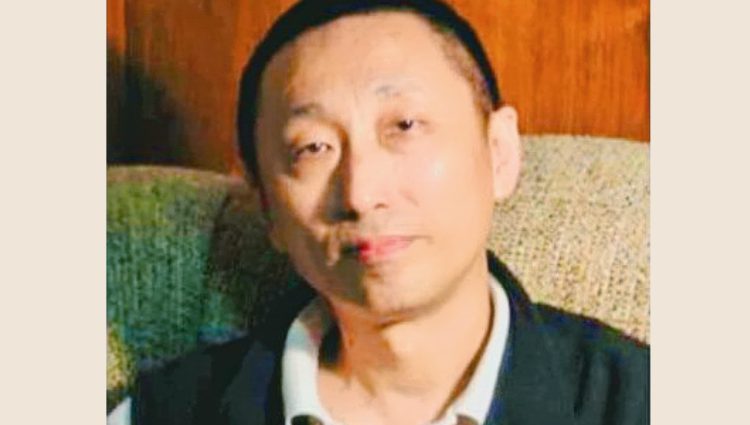Dr. William Wei-Guo Jia obtained his B.Sc. at Fudan University in Shanghai in 1982. In 1985, he went to Dalhousie University, Canada and earned his M.Sc. there. He had his PhD in 1991 at University of British Columbia in molecular neurosciences. After 3 years’ postdoctoral training in molecular virology and cancer biology, Dr. Jia was recruited into the Faculty of Medicine at UBC as an assistant professor in 1994. He has been an associate professor since 1999. Dr. Jia is also a senior scientist at BC Cancer Research Centre and has been cross appointed at various departments at UBC, including Pathology and Ophthalmology.
In 2004, Dr. Jia was appointed as a professor in the Faculty of Life Sciences at Fudan University in Shanghai. He has been a conjunct professor Shanghai Institute of Pharmaceutical Industry since 2000. He is now also the vice-president of Shanghai Innovative Research Centre of Traditional Chinese Medicine.
Dr. Jia was the first in Canada and the first few scientists in the world using human Herpes simplex virus to treat cancer. His major contribution was the first to prove that genetic engineered virus could selectively destroy malignant brain cancer in an animal model with a competent immune system. This finding was directly related to the clinical application of gene therapy strategy since viral vector mediated gene therapy prior to Dr. Jia’s study all used immune defective animal models that could not truly mimic clinical situations of human cancer patients. His finding showed that herpes virus can overcome the resistance from the host immune system and reach the tumor cells to selectively destroy the tumor. This work was published in the highest ranked cancer journal: The Journal of National Cancer Institute with an editorial comment and gained a lot of attention in general public as well. His next contribution was to prove the safety of the genetic engineered virus. The results were cited repeatedly at hearings of the US Congress for gene therapy and used as critical evidence for the safety of gene therapy. The results were also the key evidence to get approval from US FDA for the clinical trial of herpes viral gene therapy that is now in its Phase II stage. One gene therapy drug for malignant gliomas developed by Dr. Jia has completed phase I clinical trial in China.
The other research activity of Dr. Jia’s laboratory is to study natural products for their anticancer and neuroprotective effects. They have recently discovered that a compound extracted from plants not only possesses strong tumor inhibitory effect but also can dramatically enhance the efficacy of conventional anti-tumor drugs on multidrug resistant tumor cells. A patent application based on this finding has been obtained. Dr. Jia is also working on a compound extracted from a Chinese herbal for anti-HIV treatment.
Most recently, Dr. Jia has invented a new concept for drug development from traditional medicine. The concept is named “post-absorption/ metabolism drugs” or PAMDs. This concept emphasizes on identifying and isolation of chemical components that are absorbed and presence in the blood and target organs after orally taken the medicine instead of original chemicals contained in herbs. Utilizing this concept, some novel lead compounds have been identified with potent pharmacological activity and extremely low toxicity.
In the past 11 years, Dr. Jia has received many awards and research funds. Since 1997, he has been a Scholar of Canadian Institute of Health Research.
Selected Publications (2006-2007):
1. D. Yu, C. Scott, W. Jia, A De Benedetti, B. Williams, L. Fazli, M. Gleave, C. Nelson and P. Rennie: Targeting and killing of prostate cancer cells using lentiviral constructs containing a sequence recognized by translation factor eIF4E and a prostate specific promoter. Cancer Gene Therapy 2006 Jan;13(1):32-43
2. D. Feng; J. Chen; Y. Yue; H. Zhu; J. Xue; W. Jia A 16-bp Rep Binding Element is Sufficient for Mediating Rep-dependent Integration into AAVS1, J. Mol. Biol 2006 358:38 -45
3. Xie, X, Eberding A, Madera C, Fazli L, Jia W, Goldenberg L, Gleave ME and Guns ES: Rh2 synergistically enhances paclitaxel or mitoxantrone in prostate cancer models. J Urol. 2006:175(5):1926-31.
4. Jihua Yao, Lu Wang, Li Chen, Shuhong Zhang, Qinshun Zhao, William Jia, Jinglun Xue Cloning, and developmental expression of the DEC1 ortholog gene in zebrafish, Gene Expression Patterns: a section of MOD (MODGEP) 2006 Oct;6(8):919-27
5. W. Jia, Post absorption/metabolism multi-compound drug: a new approach to modernization of Chinese herbal medicine. J. Chinese Integrative Medicine, 2006, 4(5):441-446
6. J Chen, C Ji, G Xu, R Pang, J Yao, H Zhu, J Xue, W Jia, DAXX interacts with phage ΦC31 integrase and inhibits recombination Nuclear Acid Research 2006;34(21):6298- 304.
7. L Wang, J. Yao; L Chen; J. Chen; J. Xue; W. Jia, Expression, and possible functional roles of cytochromes P450 2J1 (zfCyp 2J1) in zebrafish, Biochem and Biophy Res Comm 2007, 26;352(4):850-5
8. Liu G, X. Bu, H. Yan, W. Jia: 20Sprotopanaxadiol induces apoptosis in glioma cells through both caspase dependent and independent pathways J. Natural Products 70(2):259-64, 2007
9. Yu Y, X. Bu, H. Yan, W. Jia: 20(S)-protopanaxadiol (aPPD), a potential selective estrogen receptor modulator and its synergy with tamoxifen for prevention and treatment of breast cancer. Cancer 109:2374-82, 2007
10. C Lee, X. Bu, Rennie and W.W.-G. Jia An HSV-1 amplicon system for prostate-specific expression of ICP4 to complement oncolytic viral replication for in vitro and in vivo treatment of prostate cancer cells, Cancer Gene Therapy 14 (7):652-60, 2007

